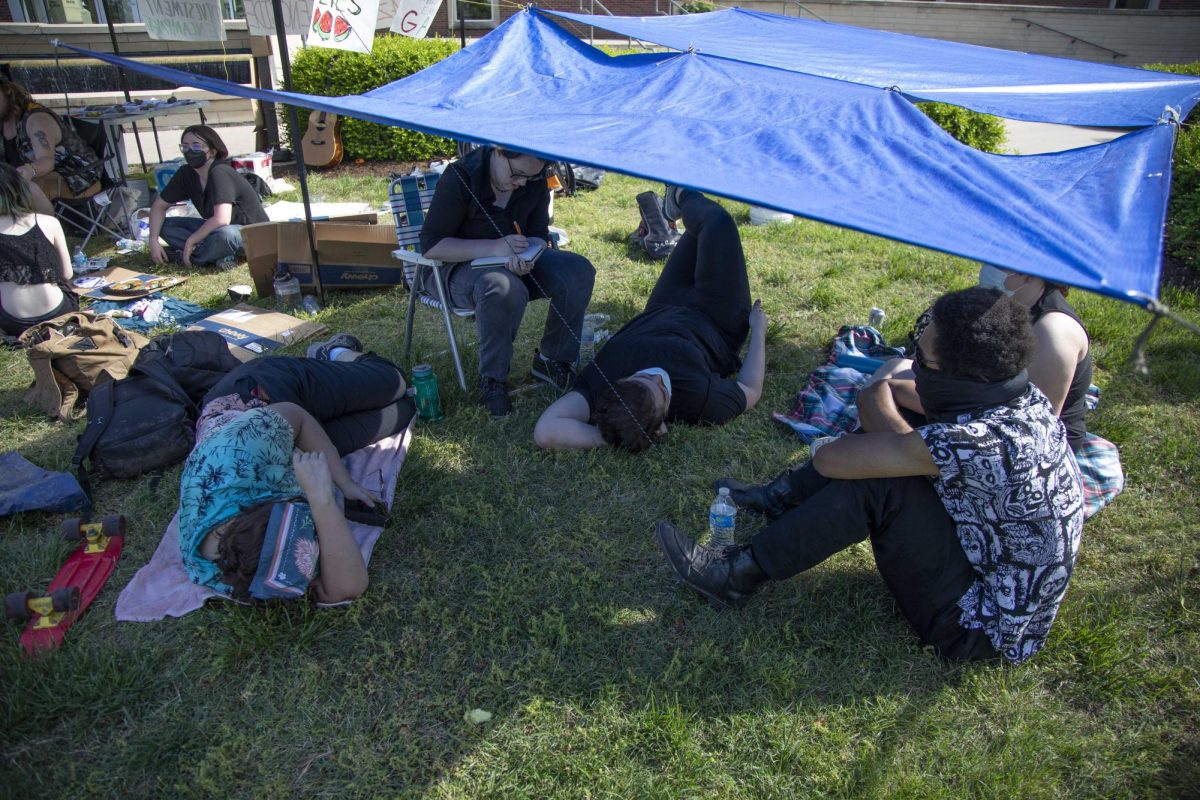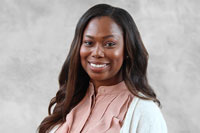’71 Saluki graduate a Hollywood success story
December 5, 2013
In the living room of a small Forest Street apartment in 1971, Dale White sat watching television with his friends. As the Mary Tyler Moore Show began, he turned to his friends and said, “Man, it’d be great to work on a show like that.” “You’d be lucky to sweep the floors,” one friend said. “they could not have been more wrong. Dale White was born Feb. 28, 1949 to a working class family on the South Side of Chicago. His father was a machinist and his mother went to beauty school before becoming a stay-at-home mother. He went to Bogan High School where he played keyboard in a band.
After graduating in 1966, White enrolled at Chicago Teachers College, now Chicago State University, for one semester before transferring to SIU in the spring of 1967. SIU was a huge stepping-stone in his life. “For me, college was a di#erent world,” White said. “It was an eye opener and a real growth thing because I lived at home at first. When I got to Southern, I lived on my own and I became a whole di#erent person. It gave me a lot of freedom and a sense of who I was.” He originally majored in music before switching to radio and television for practical reasons.
“I made a transition out of that into radio and TV because it was much more exciting,” he said. “It seemed more logical in a progression to get something. It was too abstract and too hard to figure out how you were going to come up with a composition, record it, publish it and get a band or whatever and make it. Whereas if you work at a TV station, I could find a job which seemed more sensible.”
Advertisement
While at the university, White ran a soft jazz show on WIDB and held a job at master control at WSIU. “I can sing you all of the “Sesame Street” and “Mr. Rogers” songs by heart,” he said. “”at’s basically what you did. You ran “Sesame Street” and “Mr. Rogers” and then “Sesame Street” again.” It was also at SIU he met his future wife Claire Chalem in 1968. He needed to pass a law and policy class to graduate but his bad grammar was hindering him. “I walk into the union one day and a guy said, ‘there’s Claire. She’s going to be a teacher and an English education major. She can help you with your law and policy course,’” he said. “So that’s how we met and we hung out with the same group and stayed together and many years later we got married.” After graduating in 1971, he moved to Chicago to find a job. He walked around Michigan Ave. passing out résumés. He freelanced for a while and worked on the very first McDonald’s Quarter Pounder commercial. He found more work at several smaller stations in Chicago before deciding to head west. “I called and set up interviews ahead of time in Los Angeles and went to San Diego,” he said. “I went up to LA and spent a week and stayed in the Hollywood YMCA.”
White was promised a job at a television station that was changing ownership. He was told to wait 30 days to 6 months, so he returned to Chicago and stayed in touch with the executive. “One day I called and he was gone, and no one knew of him,” he said. “the company had changed ownership and fired everyone. I was out of work.” White worked at several local affiliates cutting film and directing educational television. He was able to join the Academy of Arts and Sciences and began passing around résumés at Hollywood luncheons. His background in educational television earned him a position placing interns in Hollywood. “I’m off work all summer, I’m going to go check on my interns that I decided to place,” he said. “I made a huge leap here. I had no connections other than discussing interns with the panel what I thought of this person or that person. So I had a little bit of a back door.” He was able to get on to the set of MTM Enterprises shows such as “Lou Grant” and “the Mary Tyler Moore Show,” the very studios he was told he would be lucky to be sweeping. He stood on the wall camou!aged until one day someone asked him what he was doing there. “I explained the whole placement of the interns and said I was trying to $nd a way in. He said, ‘Let me introduce you to the head of production,’” White said. “So I met this man who was industry famous: Eddie Singer.” Singer gave White a chance as a second assistant director running the background on Lou Grant in 1979, but warned him that if he screwed up, he was out of the job, and likely the business.
On his first day, someone got drunk and started hurling insults at a church elder where they were shooting. White thought he was as good as gone, but it was not his fault and he eventually moved to another production: “e White Shadow. He received his first credit here on Jan. 6, 1981 as a second assistant director. Two months later, the show was cancelled, but he found work at another show: Hill Street Blues. White eventually moved from second assistant to $rst assistant and even directed three episodes. White was with Hill Street Blues until 1987. During this time, he married Claire in 1983 and had his $rst child, Ashley, in 1985. Eight weeks after Ashley was born, she was an infant on Hill Street Blues. White eventually found himself without work because of the 1988 Writers Guild of America Strike. But there was also a silver lining: the birth of his second daughter, Courtney, in 1988. White went back to MTM and switched from dramas to sitcoms. He landed a job on a show called Men Behaving Badly, where he met legendary director James Burrows, director on shows including “Frasier” and “Friends.” “Men Behaving Badly” ended up becoming problematic and Burrows was brought back in to save the show. “Burrows quit the show and said he had a fun clause where if he is not having fun with the show he leaves,” he said. “He left and I had to deal with a lot of craziness for another year.” Burrows soon needed a crew for pilot season and brought White along to be the assistant director on “Will and Grace.” “e show eventually won a plethora of awards including a Primetime Emmy Award for Outstanding Comedy. White and Burrows have worked together for the past 18 years on shows including “Two and a Half Men,” “2 Broke Girls” and “Mike and Molly.” They are now working on “The Millers” starring Will Arnett. White is proud of what he’s done and said he would not change a thing. To make it in Hollywood, you have to stay focused and optimistic, he said. “You’ve got to make your own end roads and you can’t give up,” he said. “It’s a long road and it’s very dark at times. It can be very easily deterred and you can lose yourself. After all, he’s made it further than sweeping the floors.
Seth Richardson can be reached at
or 536-3311 ext. 257.
Advertisement*
Advertisement







